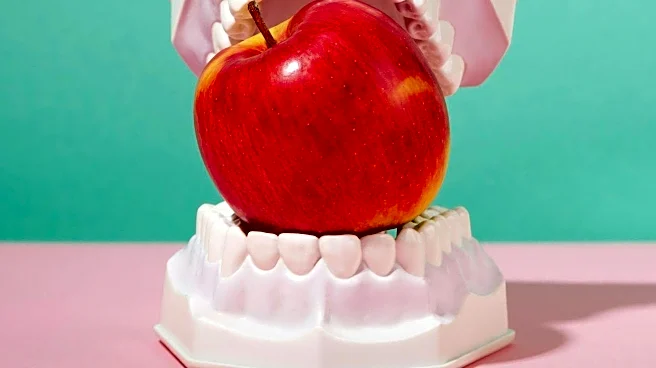What's Happening?
Japanese researchers have developed a drug that could help people grow new teeth, according to a rumor circulating online since 2024. The drug, proven effective in mice, reactivates extra 'tooth buds'
present in most people's mouths. Scientific Reports published a paper outlining the development of the drug, which blocks the protein Usag-1 to promote tooth development in mice with underdeveloped teeth. The research suggests potential clinical applications for treating congenital tooth agenesis in humans. Toregem BioPharma, a Japanese biopharmaceutical company, is conducting clinical trials of the drug on humans.
Why It's Important?
The development of a drug that can regrow teeth could revolutionize dental care, potentially eliminating the need for dentures and implants. This breakthrough offers hope for individuals with congenital tooth agenesis and other dental conditions, improving their quality of life and reducing healthcare costs. The research highlights the potential for regenerative medicine to address complex health challenges, paving the way for innovative treatments in dentistry.
What's Next?
Clinical trials are underway to test the drug's efficacy in humans, with potential for widespread application if successful. Further research will explore the conditions necessary for the drug to regrow teeth and its long-term effects. Collaboration among researchers, clinicians, and pharmaceutical companies will be crucial in advancing this line of research.
Beyond the Headlines
The study raises ethical considerations regarding the manipulation of biological processes for therapeutic purposes. The potential for regenerative medicine to transform healthcare underscores the importance of interdisciplinary approaches in scientific research.









